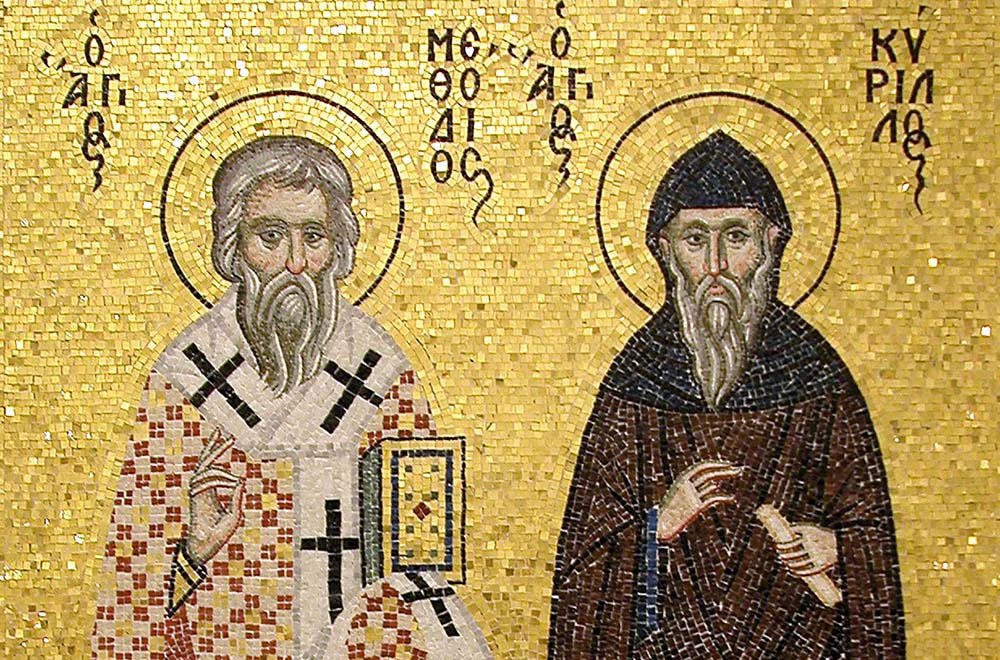Missionary to the Slavs, 869, 885 (Lesser Feasts and Fasts 2000)

Cyril and Methodius, brothers born in Thessalonika, are honored as apostles to the southern Slavs and as the founders of the Slavic literary culture. Cyril was a student of philosophy and a deacon, who eventually became a missionary monastic. Methodius was first the governor of a Slavic colony, then turned to the monastic life, and was later elected abbot of a monastery in Constantinople.
In 862, the King of Moravia asked for missionaries who would teach his people in their native language. Since both Cyril and Methodius knew Slavonic, and both were learned men—Cyril was known as “the Philosopher”— the Patriarch chose them to lead the mission.
As part of his task among the Moravians, Cyril invented an alphabet to transcribe the native tongue, probably the “glagolithic,” in which Slavo-Roman liturgical books in Russian and Serbian are still written. The so-called “Cyrillic” alphabet is thought to have been originated by Cyril’s followers.
Pressures by the German clergy, who opposed the brothers’ teaching, preaching and writing in Slavonic, and the lack of a bishop to ordain new priests for their people, caused the two brothers to seek foreign help. They found a warm welcome at Rome from Pope Adrian the Second, who determined to ordain both men bishops and approved the Slavonic liturgy. Cyril died in Rome and was buried there. Methodius, now a bishop, returned to Moravia as Metropolitan of Sirmium.
Methodius, still harassed by German bishops, was imprisoned at their behest. Eventually, he was released by Pope John the Eighth, on the condition that Slavonic, “a barbarous language,” be used only for preaching. Later, the enmity of the Moravian prince caused Methodius to be recalled to Rome on charges of heresy. Papal support again allowed him to return to Moravia and to use Slavonic in the liturgy.
Methodius completed a Slavonic translation of the Bible and of Byzantine ecclesiastical law, while continuing his missionary activities. At his funeral, celebrated in Greek, Latin and Slavonic, “the people came together in huge numbers…for Methodius had been all things to all people that he might lead them all to heaven.”
